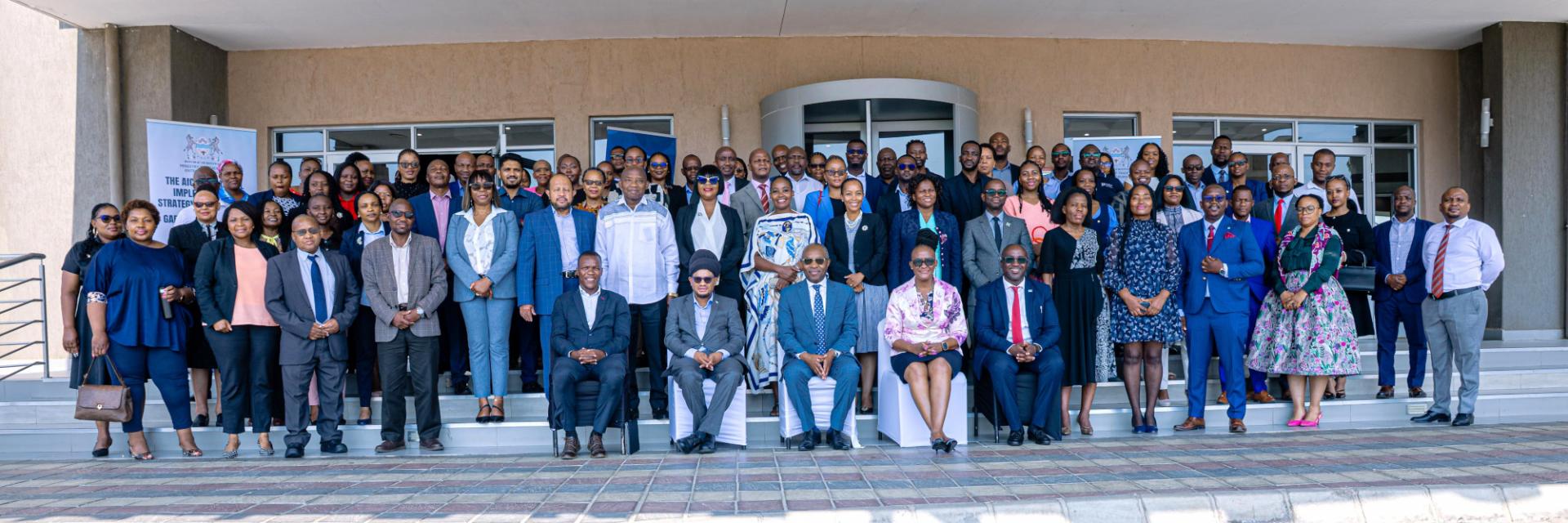Botswana Sets Course for Economic Diversification under AfCFTA - ENA English
Botswana Sets Course for Economic Diversification under AfCFTA

Addis Ababa, March 9, 2025 (ENA) -- Botswana has embarked on the development of a National Implementation Strategy for the African Continental Free Trade Area (AfCFTA), a crucial step toward maximizing the benefits of the Agreement and boosting intra-African trade.
A National Consultative Forum for the Development of Botswana’s AfCFTA Implementation Strategy held to gather insights from multiple stakeholders to inform the development of Botswana’s AfCFTA Implementation Strategy and Action Plan.
Ministry of Trade and Entrepreneurship of Bostwana hosted the one day forum in collaboration with the Economic Commission for Africa (ECA).
Speaking on the occasion, Deputy Permanent Secretary of the Ministry of Trade and Entrepreneurship, Goemeone Mogomotsi, emphasized that the strategy comes at an opportune time to guide Botswana’s participation in the AfCFTA and ensure the country fully capitalizes on the opportunities presented by the Agreement.
“The strategy will enable us to align Botswana’s areas of comparative advantage with continental demand, with the ultimate goal of diversifying our economy,” said Mogomotsi.
He further highlighted that the strategy will explore opportunities in continental value chains to optimize trade under the AfCFTA.
The AfCFTA Agreement, signed in Kigali, Rwanda, in 2018, aims to create a single market for goods and services across Africa, progressively eliminating tariff and non-tariff barriers to enhance intra-African trade. It is expected to drive deeper economic integration, promote industrialization, and support sustainable development.
The strategy is expected to serve as a roadmap for the country’s private sector engagement, industrial expansion, and economic transformation under the AfCFTA framework.
Highlighting the significance of international trade, Mogomotsi stated: “International trade is central to economic development. By actively participating in trade, countries can transform their economies, enhance industrialization, create jobs, and achieve economic diversification.”
The strategy will provide a clear pathway for the private sector to seize the opportunities presented by the AfCFTA,” Mogomotsi added.
To support the effective implementation of the AfCFTA, Botswana has joined the AfCFTA Guided Trade Initiative (GTI) alongside 31 other State Parties. This initiative, spearheaded by the AfCFTA Secretariat, is designed to facilitate actual trade among African countries by connecting buyers and sellers and ensuring that the Agreement is operationalized.
“We fully recognize that reaping the benefits of the AfCFTA is not automatic. It requires deliberate strategic interventions at both the national and regional levels,” noted Mogomotsi.
Speaking at the forum, Stephen Karingi, Director for the Regional Integration and Trade Division of the Economic Commission for Africa, described the AfCFTA as a transformative opportunity for Botswana and the continent at large.
“The AfCFTA is a game-changer, poised to create the world’s largest free trade area and unlock unprecedented economic potential,” Karingi remarked.
The consultative process will continue, with further engagements planned to refine and validate the strategy, ensuring that it is well-aligned with Botswana’s broader economic aspirations before moving to full implementation.